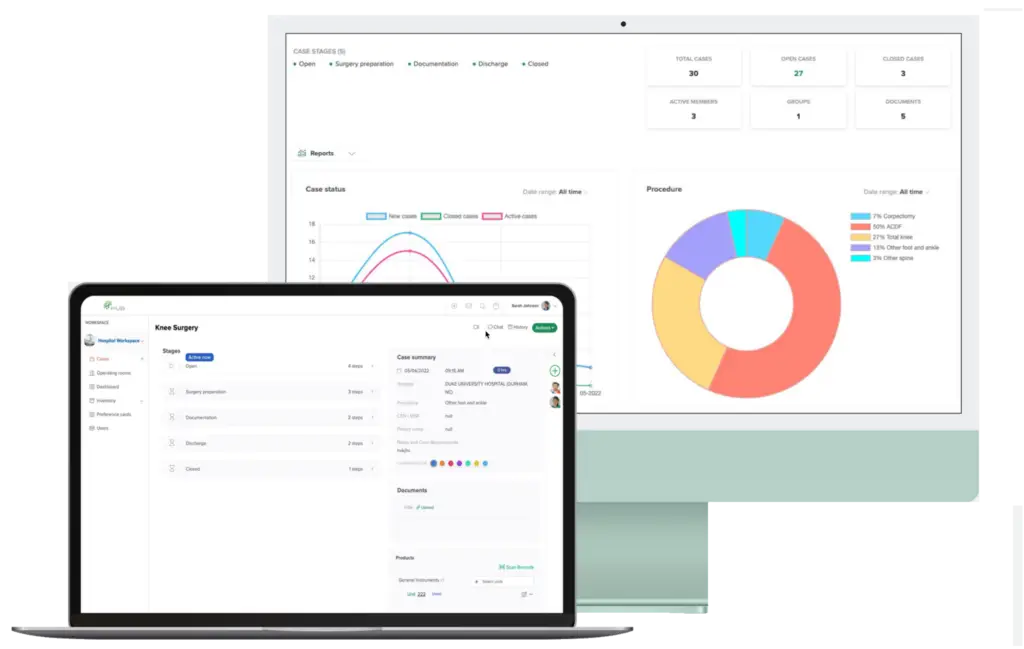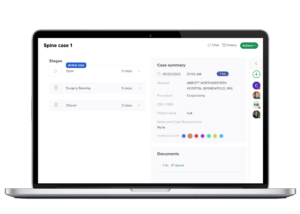In the high-stakes world of healthcare, where precision and accuracy can mean the difference between life and death, the importance of checklists cannot be overstated. This concept is vividly illustrated in a YouTube video by NASA, which shows the meticulous use of checklists in launching a spaceship. The same level of detail and precision is essential in healthcare to ensure patient safety and improve outcomes.

Why Checklists Matter in Healthcare
Enhancing Patient Safety
Checklists serve as an essential tool in enhancing patient safety by ensuring that no critical steps are overlooked. In surgical settings, for example, checklists help verify patient identity, confirm the correct surgical site, and ensure all necessary equipment is sterilized and available. This reduces the risk of errors and complications, leading to better patient outcomes.
Standardizing Procedures
Healthcare involves a multitude of complex procedures that require consistent execution. Checklists help standardize these procedures, ensuring that all healthcare professionals follow the same steps every time. This standardization reduces variability and enhances the quality of care.
Improving Communication and Coordination
Effective communication and coordination are vital in healthcare, where multiple providers often collaborate on patient care. Checklists facilitate clear communication by providing a common framework that all team members can follow. This ensures that everyone is on the same page, reducing misunderstandings and errors.
Boosting Efficiency
In the fast-paced environment of healthcare, efficiency is crucial. Checklists streamline workflows by outlining necessary steps and eliminating unnecessary ones. This allows healthcare providers to focus on critical tasks, improving overall efficiency and reducing the time patients spend in the healthcare system.
Lessons from NASA: The Power of Checklists
The NASA video showcases the rigorous use of checklists in launching a spaceship. This process involves numerous complex tasks that must be performed in a precise sequence. The use of checklists ensures that each task is completed accurately and in the correct order, highlighting their importance in high-stakes environments.
Similarly, in healthcare, the stakes are incredibly high. Whether it’s a surgical procedure, administering medication, or managing patient records, checklists provide a structured approach to ensure that every detail is attended to with precision.
Implementing Checklists in Healthcare Settings
Surgical Checklists
One of the most well-known applications of checklists in healthcare is the surgical safety checklist developed by the World Health Organization (WHO). This checklist has been shown to significantly reduce surgical complications and mortality rates by ensuring that critical steps are not missed.
Medication Administration
Medication errors are a significant concern in healthcare. Checklists help verify the correct medication, dosage, and patient before administration, reducing the risk of errors and adverse drug events.
Infection Control
Infection control checklists guide healthcare providers through the necessary steps to maintain a sterile environment, such as hand hygiene, equipment sterilization, and proper use of personal protective equipment (PPE). This helps prevent healthcare-associated infections (HAIs) and ensures patient safety.
Conclusion
Checklists are a simple yet powerful tool that plays a crucial role in enhancing patient safety, standardizing procedures, improving communication, and boosting efficiency in healthcare. The meticulous use of checklists by NASA in launching a spaceship underscores their importance in any high-stakes environment. By incorporating checklists into everyday practices, healthcare providers can ensure a higher standard of care and better patient outcomes.
Call to Action
What are your experiences with using checklists in healthcare? Share your thoughts and insights in the comments below, and don’t forget to subscribe to our blog for more articles on improving patient care and healthcare efficiency.
How HUB Healthcare Can Help
HUB Healthcare offers a comprehensive solution designed to ensure HIPAA-compliant communication in healthcare settings. With features such as secure messaging, encrypted document management, and detailed audit trails, HUB Healthcare provides the necessary tools to protect patient information and comply with HIPAA regulations. By leveraging HUB Healthcare’s robust platform, healthcare organizations can facilitate secure and efficient communication, ultimately improving patient care and operational efficiency.






